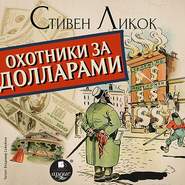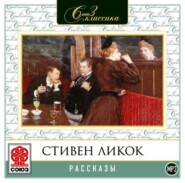По всем вопросам обращайтесь на: info@litportal.ru
(©) 2003-2025.
✖
The Hohenzollerns in America
Автор
Год написания книги
2019
Настройки чтения
Размер шрифта
Высота строк
Поля
About her in the tall trees of the allee the percherons twittered while the soft roucoulement of the bees murmured drowsily in the tall calice of the chou-fleur.
"Il n'est pas venu," she said (perfect tense, third singular, he is not, or has not, come).
Can we blame him if he didn't? No doubt he was still studying his active verb before tackling Mere Pitou.
But there! Let it pass. In any case it is not only the magazines, but the novels themselves, that are being transformed by the war. Witness this:
BY ONE OF OUR MOST POPULAR NOVELISTS
"It was in the summer house, at the foot of the old garden, that the awaited declaration came. Edwin kneeled at Angelina's feet. At last they were alone! The successful barrage of conversation which he had put up at breakfast had compelled her mother to remain in her trenches, and had driven her father to the shelter of his dug-out. Her younger brother he had camouflaged with the present of a new fishing rod, thus inducing him to retire to the river. The communications with the servants had been cut. Of the strict neutrality of the gardener he was already assured. Edwin felt that the moment had come for going over the top. Yet being an able strategist, he was anxious not to attempt to advance on too wide a front.
"Angelina!" he exclaimed, raising himself to one knee with his hands outstretched toward her. The girl started as at the sound of an air bomb; for a moment she elevated her eyes and looked him full in the tangent, then she lowered them again but continued to observe him through her mental periscope.
"Angelina," he repeated, "I have a declaration to make."
"As from what date?" she questioned quietly. Edwin drew his watch from his pocket.
"As from this morning, at ten-forty-six," he said. Then, emboldened by her passive attitude, he continued with rising passion in his tone.
"Ever since I first met you I have felt that I could not live without you. I am a changed man. My calibre is altered. I feel ten centimeters wider in the mouth than I did six weeks ago. I feel that my path is altered. I have a new range and an angle of elevation such as I never experienced before. I have hidden my love as best I could till now. I have worn a moral gas-mask before your family. I can do so no longer. Angelina, will you be mine, forming with me a single unit, drawing our rations from the same field kitchen and occupying the same divisional headquarters?"
The girl seemed to hesitate. She raised her eyes to his.
"We know one another so little," she murmured.
Edwin felt that his offensive was failing. He therefore hastened to bring up his means of support.
"I have an ample income of my own," he pleaded.
Angelina raised her eyes again. It was evident that she was about to surrender. But at this moment her mother's voice was heard calling, "Angelina, Angelina, my dear, where are you?"
The barrage had broken down.
"Quick," said the girl, "mobilize yourself. Pick up that tennis racket and let us hurry to the court and dig ourselves in."
"But my declaration," urged Edwin eagerly.
"Accepted," she said, "as from eleven-two this morning."
V.—Other Impossibilities
1.—The Art of Conversation
I—HOW TO INTRODUCE TWO PEOPLE TO ONE ANOTHER
Nothing is more important in introducing two people to each other than to employ a fitting form of words. The more usually recognized forms are easily learned and committed to memory and may be utilized as occasion requires. I pass over such rudimentary formulas as "Ed, shake hands with Jim Taylor," or, "Boys, this is Pete, the new hand; Pete, get hold of the end of that cant-hook." In fact, we are speaking only of polite society as graced by the fair sex, the only kind that we need care about.
The Third Avenue Procedure
A very neat and convenient form is that in vogue in Third Avenue circles, New York, as, for instance, at a fifty-cents-a-head dance (ladies free) in the hall of the Royal Knights of Benevolence.
"Miss Summerside, meet Mr. O'Hara," after which Miss Summerside says very distinctly, "Mr. O'Hara," and Mr. O'Hara says with equal clearness "Miss Summerside." In this circle a mark of exquisite breeding is found in the request to have the name repeated. "I don't quite catch the name!" says Mr. O'Hara critically; then he catches it and repeats it—"Miss Summerside."
"Catching the name" is a necessary part of this social encounter. If not caught the first time it must be put over again. The peculiar merit of this introduction is that it lets Miss Summerside understand clearly that Mr. O'Hara never heard of her before. That helps to keep her in her place.
In superior circles, however, introduction becomes more elaborate, more flattering, more unctuous. It reaches its acme in what everyone recognizes at once as
The Clerical Method
This is what would be instinctively used in Anglican circles—as, for example, by the Episcopal Bishop of Boof in introducing a Canon of the Church to one of the "lady workers" of the congregation (meaning a lady too rich to work) who is expected to endow a crib in the Diocesan Home for Episcopal Cripples. A certain quantity of soul has to be infused into this introduction. Anybody who has ever heard it can fill in the proper accentuation, which must be very rich and deep.
"Oh, Mrs. Putitover, MAY I introduce my very dear old friend, Canon Cutitout? The Canon, Mrs. Putitover, is one of my DEAREST friends. Mrs. Putitover, my dear Canon, is quite one of our most enthusiastic workers."
After which outburst of soul the Bishop is able to add,
"Will you excuse me, I'm afraid I simply MUST run."
Personally, I have never known or met a Bishop in society in any other situation than just about to run. Where they run to, I do not know. But I think I understand what they run from.
The Lounge Room of the Club
Equally high in the social scale but done quite differently is the Club Introduction. It is done by a club man who, for the life of him, can't remember the names of either of the two club men whom he is introducing, and who each, for the life of him, can't think of the name of the man they are being introduced by. It runs—
"Oh, I say, I beg your pardon—I thought, of course, you two fellows knew one another perfectly well—let me introduce—urr–wurr–"
Later on, after three whiskey-and-sodas, each of the three finds out the names of the other two, surreptitiously from the hall porter. But it makes no difference. They forget them again anyway. Now let us move up higher, in fact, very high. Let us approach the real thing.
Introduction to H.E. the Viceroy of India, K.C.B.,
K.C.S.I., S.O.S.
The most exalted form of introduction is seen in the presentation of Mr. Tomkins, American tourist, to H.E. the Viceroy of India. An aide-de-camp in uniform at the foot of a grand staircase shouts, "Mr. Tomkins!" An aide-de-camp at the top (one minute later) calls "Mr. Thompson"; another aide, four feet further on, calls "Mr. Torps."
Then a military secretary, standing close to His Excellency, takes Mr. Tomkins by the neck and bends him down toward the floor and says very clearly and distinctly, "Mr. Torpentine." Then he throws him out by the neck into the crowd beyond and calls for another. The thing is done. Mr. Tomkins wipes the perspiration from his hair with his handkerchief and goes back at full speed to the Hoogli Hotel, Calcutta, eager for stationery to write at once to Ohio and say that he knows the Viceroy.
The Office Introduction, One-sided
This introduction comes into our office, slipping past whoever keeps the door with a packet of books under its arm. It says—
"Ledd me introduze myself. The book proposition vidge I am introduzing is one vidge ve are now pudding on the market…"
Then, of two things, one—
Either a crash of glass is heard as the speaker is hurled through the skylight, or he walks out twenty minutes later, bowing profusely as he goes, and leaving us gazing in remorse at a signed document entitling us to receive the "Masterpieces of American Poetry" in sixty volumes.
On the Stage
Everything on the stage is done far better than in real life. This is true of introductions. There is a warmth, a soul, in the stage introduction not known in the chilly atmosphere of everyday society. Let me quote as an example of a stage introduction the formula used, in the best melodramatic art, in the kitchen-living-room (stove right centre) of the New England farm.














